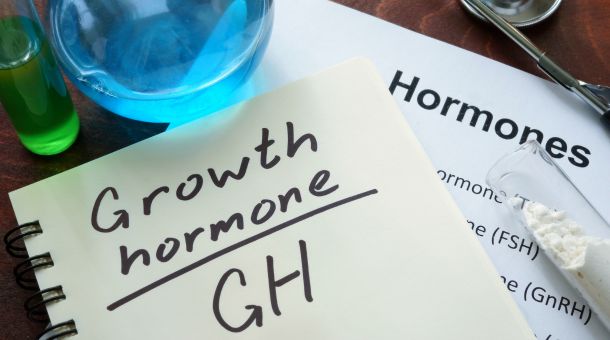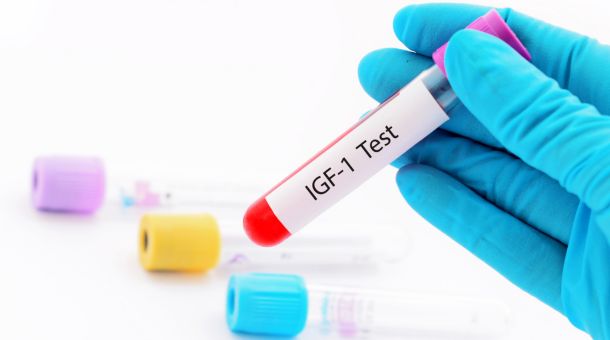Fertility is a subject of paramount importance in the lives of many individuals and couples. The desire to conceive and build a family is a deeply ingrained human aspiration.
While fertility is influenced by a multitude of factors, one hormone that has garnered significant attention in recent years is growth hormone (GH).
In this article, we will explore the intricate relationship between growth hormone and fertility, shedding light on the potential benefits and considerations for those seeking to enhance their fertility.

Before delving into the connection between growth hormone and fertility, it is crucial to have a clear understanding of what growth hormone is and its primary functions within the body.
Growth hormone, also known as somatotropin, is a peptide hormone produced by the pituitary gland, a small but essential gland located at the base of the brain.
GH plays a pivotal role in stimulating growth, cell reproduction, and regeneration.
During childhood and adolescence, it is primarily responsible for promoting linear growth, ensuring that individuals reach their genetically predetermined height.
In adulthood, GH continues to play essential roles in maintaining healthy body composition, regulating metabolism, and supporting overall well-being.
The relationship between growth hormone and reproductive health is complex and multifaceted.
While GH primarily focuses on promoting growth and development, it also indirectly influences fertility through several mechanisms:
Growth hormone receptors are present in the ovaries, and GH has been shown to stimulate the development of ovarian follicles.
Follicles are the tiny, fluid-filled sacs within the ovaries that house eggs. The growth and maturation of these follicles are vital for successful ovulation and subsequent fertility.

GH stimulates the liver to produce insulin-like growth factor 1 (IGF-1), a hormone that shares structural similarities with insulin.
IGF-1 is known to influence the functioning of the female reproductive system by promoting the growth and development of ovarian follicles and regulating the menstrual cycle.
GH may play a role in optimizing the function of the ovaries, including the production of sex hormones such as estrogen and progesterone.
These hormones are essential for regulating the menstrual cycle and preparing the uterine lining for embryo implantation.
GH has been suggested to promote the development of a healthy endometrial lining.
A thick and receptive endometrial lining is critical for successful embryo implantation during pregnancy.
Chronic stress can negatively impact fertility by disrupting hormonal balance. Some studies have suggested that GH may help reduce stress and improve overall well-being, indirectly benefiting fertility.

Given its influence on various aspects of reproductive health, growth hormone has been investigated as a potential tool to improve fertility in certain circumstances. Here are some potential benefits of growth hormone in fertility:

While the potential benefits of growth hormone in fertility are intriguing, it is essential to approach this topic with a balanced perspective. There are several considerations and cautions to keep in mind:
Fertility is highly individualized, and what works for one person may not work for another. The impact of growth hormones on fertility may vary from person to person.
The medical community has not reached a consensus on the use of growth hormone as a fertility treatment. Research in this area is ongoing, and more evidence is needed to establish its effectiveness and safety.
Growth hormone therapy can be costly and may not be accessible to everyone. Insurance coverage for this treatment may also vary.
Like any medical treatment, growth hormone therapy carries potential risks and side effects, including fluid retention, joint pain, and changes in blood sugar levels.
If you are considering growth hormone therapy for fertility purposes, it is essential to consult with a reproductive endocrinologist or fertility specialist who can assess your specific situation and provide guidance based on the most up-to-date research and medical guidelines.
Fertility is a deeply personal journey, and the role of growth hormones in enhancing fertility is an evolving topic in the field of reproductive medicine.
While there is evidence to suggest that growth hormone may have a positive impact on certain aspects of fertility, it is not a one-size-fits-all solution.
Individuals and couples struggling with fertility should work closely with healthcare professionals to explore all available options, including growth hormone therapy, in the context of their unique circumstances.
Ultimately, the decision to incorporate growth hormone into a fertility treatment plan should be made after careful consideration, consultation with experts, and a thorough evaluation of potential risks and benefits.
As our understanding of the intricate relationship between growth hormone and fertility continues to evolve, so too will the options available to those seeking to achieve their dream of parenthood.